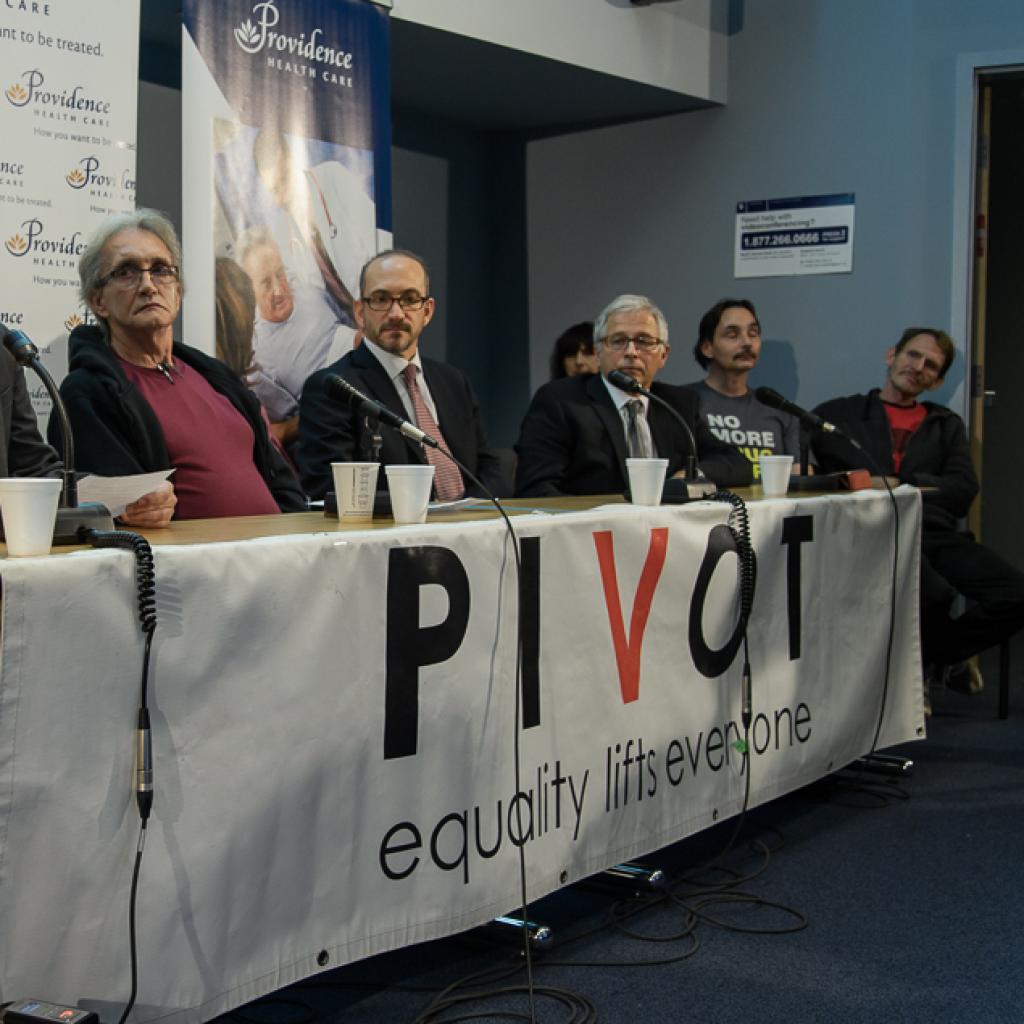Social justice
Social justice is central to our Mission. We take action to ensure equal access to healthcare, health services and medicines.

Our view of social justice
Social justice is the belief that a society should divide its social benefits fairly. In health, this means equal access to health care, health services and medicines. But we can break it down a little more.
At Providence Health Care, our commitment to social justice is right in our Vision Statement."Driven by compassion and social justice, we are at the forefront of exceptional care and innovation." Social justice at Providence means:
- Fighting against system-wide wrongs. These include racism, sexism, religious intolerance, ageism, homophobia and discrimination of all kinds.
- Fully committing to the process of Truth and Reconciliation with Indigenous Peoples. We include it in everything we do.
- Trying to achieve true diversity. This, means our clinical staff and employees are as diverse of the populations we serve.
- Ensuring equal and ethical research, teaching and learning activities, initiatives, partnerships and undertakings.
- Promoting participation in community and health care decisions. We strive to ensure no voice is accidentally or purposefully excluded.
- Defending basic human rights by advocating for the health care rights of all Providence patients and residents. To achieve this, we face off with courts and governments if we have to (and we have).
Why is social justice important to us?
We are a mission-driving organization, we view our role in the health care system as more than a provider of services. It's our faith-based mission to meet "the physical, emotional, social and spiritual needs" of those we serve. Pursuing our mission means addressing the inequities and social wrongs we see.
Examples of our social justice achievements
Throughout our history, we have acted when groups or individuals are not treated fairly within our health care system. Following are a few examples:
Health care for people living with AIDS
In the early days of the HIV epidemic, other hospitals were sending AIDS patients away in fear. St. Paul's Hospital threw open our doors to the growing number of people who needed help. Our doctors and staff didn't hesitate to provide compassionate health care to the many mostly gay men contracting the disease. These early HIV patients desperately needed care. We gathered the best possible infectious disease team to help these patients. From this, Providence built the groundwork for what became our global leadership in HIV/AIDS care, research, and human rights.
Youth access to mental health services
Back in 2007, a small team of psychiatrists at St. Paul’s Hospital realized they needed to take a completely different approach to helping young people before and after a mental health crisis. Young people needed better access to mental health and substance use care. They also needed better access to primary health care. As a result, St. Paul’s Hospital launched the Inner City Youth (ICY) program. The success of ICY lead to this team envisioning, forming and funding, Foundry. Today, Foundry is a province-wide network of integrated health and wellness services for people ages 12-24.
By offering welcoming spaces with a variety of wellness services, we want to remove the stigma that is sometimes associated with seeking help, and reach young people early on - before small problems become big ones.
Dr. Steven Mathias, Executive director and founder, Foundry
Access of drug users to life saving medication
In 2013, many Providence patients faced limited access to their life saving treatment. New regulations from the federal government limited access to diacetylmorphine (pharmaceutical-grade heroin). As a result, more than 21 former research study participants didn't have access to the medicine proven to help them. That year, Providence and the PIVOT Legal Society launched a court challenge to overturn the regulations.
In 2014, the Supreme Court of BC ruled to bring back compassionate access to this treatment for the patients represented in the case. This example shows how far we are willing to go to pursue a social justice issue.
This is a safe, effective treatment. Access to health care is a right in Canada, and my patients need access to it, or they’re going to die. And not only will they benefit, society will benefit.